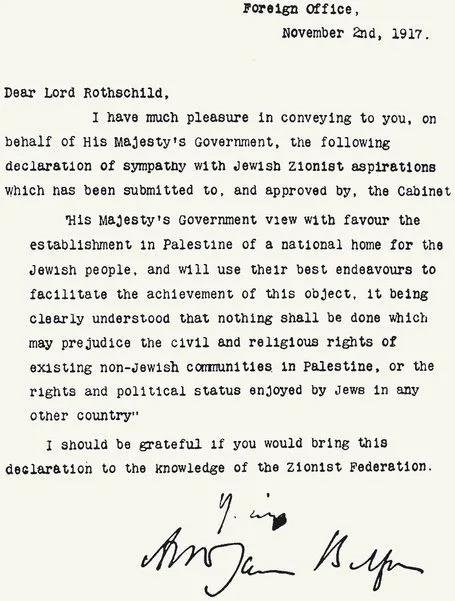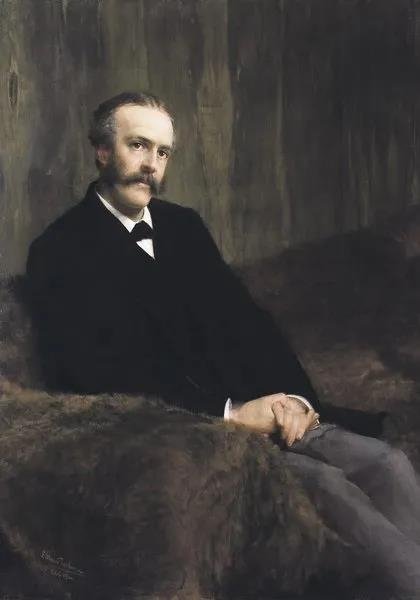Balfour's letter of November 2, 1917, known as the Balfour Declaration, was written by British Foreign Secretary Balfour to Lord Rothschild. After the promises contained in this letter were fulfilled, the territories of Palestine would never be the same. Although the letter emphasized that the rights of non-Jewish communities in Palestine would not be harmed, it did not happen that way. For the past century, the region has been ravaged by blood and tears.
The notion of creating a Jewish state in Palestine was initially proposed in Britain by Herbert Samuel, a Jewish cabinet member under Prime Minister Herbert Asquith. During this time, Samuel highlighted the significance of Palestine to Britain while advocating for the idea of a Jewish state. In January 1915, Samuel joined forces with Haim Weizmann and Chancellor of the Exchequer Lloyd George to release a memorandum on Zionism. Despite their efforts, the prevailing attitude in Britain at that time favoured international governance in the area.

Prof Dr Erhan Afyoncu penned an article for Turkish newspaper Sabah over the Balfour Declaration. The complete article written by Afyoncu can be found below, for your reading:
In the 19th century, Britain, aiming to establish a sphere of influence in Ottoman territories, sought a group that would assist it in the empire, much like France with Catholics and Russia with Orthodox Christians. It began collaborating with Jews, providing them with a significant ally on the road to returning to Palestine. Detailed information about the "Balfour Declaration," a milestone in the establishment of Israel, can be found in the research of Ismail Ediz and Jonathan Schneer.
In Britain, the idea of establishing a Jewish state in Palestine was first put forward in 1915 by Herbert Samuel, a Jewish member of Prime Minister Herbert Asquith's cabinet. Samuel emphasized the importance of Palestine for Britain when putting forward the idea of a Jewish state. In January 1915, Samuel, Haim Weizmann, and Chancellor of the Exchequer Lloyd George published a memorandum on Zionism. However, at that time, the general sentiment in Britain was that there should be international administration in the region.
Defeats in the war and the economic situation led to a change in the cabinet in December 1916, and the Palestine issue became one of the main problems of the war cabinet led by Lloyd George. The resignation of Prime Minister Herbert Asquith and the appointment of Lloyd George as prime minister marked a turning point for Zionism.
The interests of Zionists and Britain coincided. For Britain, Palestine was crucial for the security of the Suez Canal, Egypt, and India. There were concerns about German influence in Palestine.
The new prime minister wanted to convince the French that Palestine should be under British control for its interests. A committee led by Lord Curzon, which gathered to determine Britain's control zones, considered Palestine vital for the future of the empire. Unlike the prime minister, Curzon advocated direct British rule in Palestine.
Cabinet partner Bonar Law, leader of the Conservative Party, and other authorities, even outside the war cabinet, such as Winston Churchill, found Palestine important for the interests of the British Empire. Senior military officials viewed Palestine as a buffer zone between the French and British zones and believed that it was wrong for another power to govern it for the interests of their states.
Britain was aware of its interests, but previous treaties and policies posed obstacles to achieving these goals. The most important of these were promises to the Arabs and the Sykes-Picot Agreement with France.
With developments favorable to Britain during the war and opportunities in the economy, discussions about Zionism and Palestine began in London from January 1917. The first goal in the new economic and military conditions was to bring the region under Britain's control by modifying Sykes-Picot. Zionism would be used for this purpose. Lloyd George and Balfour frequently discussed the content of the policy.
The cabinet meeting on April 25 criticized the current situation in Palestine. Curzon's committee report on May 1 and Sykes's report on the Middle East on May 17 largely determined Britain's Palestine policy. Curzon did not want to establish a Jewish state in Palestine; he only cared about the interests of the British. However, to gain Jewish support, Britain needed to take concrete steps. Germany was also looking for an opportunity to gain the support of the Jews. The central administration of the Zionist organization was in Berlin. Some Zionist leaders wanted Germany to win.
By 1916, the economies of the Allies were on the verge of collapse due to the war. Britain needed the support of America and Zionism to win the war.
With America entering the war in 1917 and providing loans to the Allies, economic problems diminished. Some of the demands brought up in the negotiations were also related to Zionists, including the establishment of a Jewish state in Palestine.
At the cabinet meeting on October 31, Balfour emphasized the importance of taking a step towards establishing a Jewish state in America's support for the idea. On the other hand, Weizmann was trying to put Jewish capital in the service of British imperialism.
From August 1917, the declaration issue was constantly discussed in the British cabinet. While the Zionists were pressing for its immediate announcement, British politicians preferred caution. At the cabinet meeting on October 4, Balfour presented three arguments to convince politicians: 1- Germany's efforts to gain Zionist support. 2- Despite not receiving support from some wealthy Jews in Britain, Zionism was supported by the majority of Jews, including Russia and America. 3- Zionism is based on the intense national ideas of the Jews.
In his concluding remarks, Balfour read the draft of the declaration, stating that America would support it. There were opponents as well. For example, Lord Curzon said that improving the situation of Jews living in Palestine would be a better choice than giving them vast lands. The issue returned to the cabinet on October 31. This time, Curzon opposed the idea of turning Palestine into a Jewish state with a detailed memorandum.
Meanwhile, the territories of Palestine were being occupied by Britain. Despite the pressure from the French government to establish a joint British-French administration in Jerusalem, Sykes insisted on it being under British control and declared martial law. After the success of the military operation and securing the support of America and the cabinet, only the declaration remained. During the work on the declaration at the War Ministry, drafts presented were intervened by Zionist leaders such as Weizmann, Sokolov, and Rothschild.

The letter written by British Foreign Secretary Balfour to Lord Rothschild on November 2, 1917, is known as the Balfour Declaration, and the territories of Palestine would not be the same as before after what was promised in this letter. Although the letter emphasized that the rights of non-Jewish communities in Palestine would not be harmed, it did not happen that way. The region has not been free from blood and tears for 100 years.